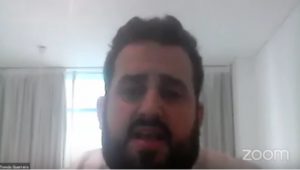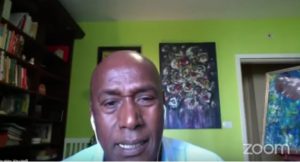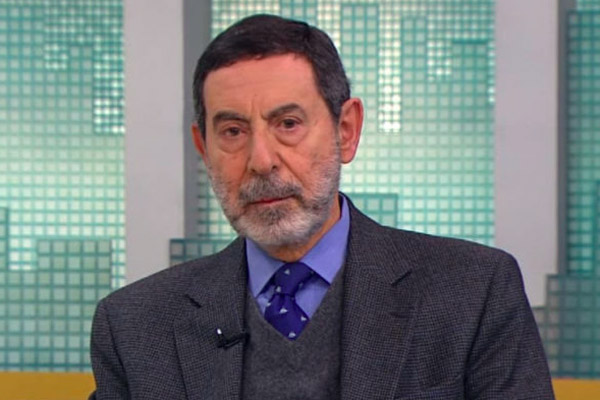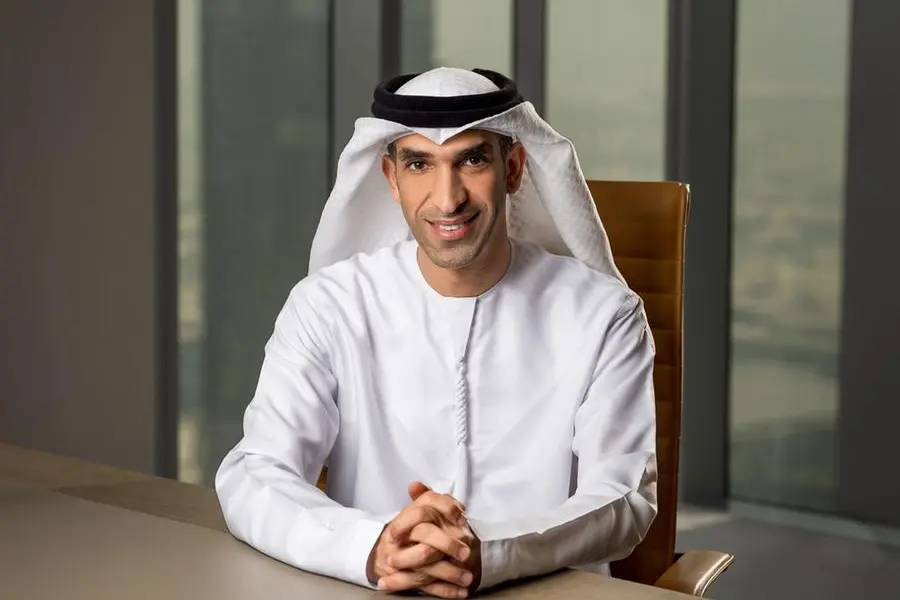ANBA – Brazil-Arab News Agency
Bruna Garcia Fonseca bruna.garcia@anba.com.br
Products intended for consumption by Muslims were in discussion in the seventh webinar hosted by the Arab Brazilian Chamber, covering opportunities in sectors including tourism, pharmaceuticals, food and cosmetics.
São Paulo – Brazil has great potential to supply the Muslim market beyond just beef and poultry, with options including value-added items in cosmetics, pharmaceuticals, food, fashion, and even halal tourism. This was the topic of the seventh webinar hosted by the Arab Brazilian Chamber of Commerce, which had about 1,000 viewers this Wednesday (10) and speakers in Brazil and abroad.
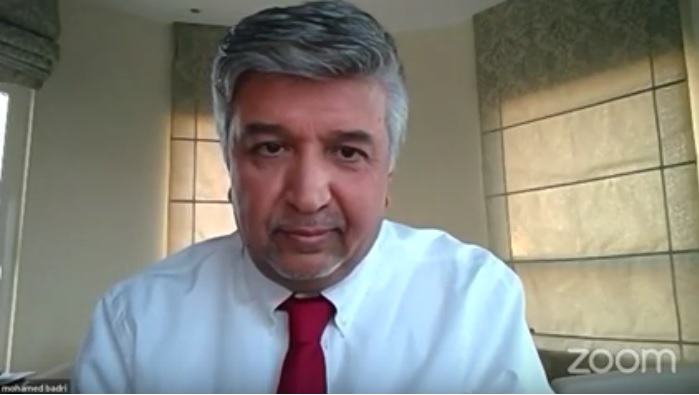
Dubai-based consulting firm Prime Group cofounder and managing partner Mohamed Badri (photo) said the “Covid-19 pandemic is just a bump on a long road. It has slowed us down, but we’ll come back, and we’re not just talking about food, but a lifestyle involving products, systems and services. We’ll grow faster and stronger, and we’ll definitely be the biggest industry in the world,” he said. The halal market comprises one third of the world population. For him, halal is the future. “Brazil is aware that we need to ensure quality, durability and sustainability for existing and new products,” he said.
Arab Chamber president Rubens Hannun’s welcome remarks included numbers on halal in Arab and non-Arab countries. “The global halal market could be as big as USD 3.2 trillion by 2024, and halal products can be consumed by over 2 billion people in the world today,” he said. Halal is expected to grow in multiple industries, including fashion, entertainment and media, tourism, food and beverages, pharma, cosmetics, and Islamic finance. Hannun believes that Covid-19 will drive up the influence of halal around the world even further.
“In Brazil we have interesting opportunities available, including high value-added gourmet foods, organics, supplying to international brands, ingredients, animal feed, e-commerce etc.,” he said.
Badri argued that efforts are underway for at least 95% unification of certification processes in the years ahead. He said it’s important for the entire supply chain to be halal-certified, which ensures product quality, environment protection, and traceability across the chain.
Halal Trade and Marketing Centre (HTMC) manager Tomas Guerrero claims that the rise of halal is underpinned by population growth and an emerging middle class in Islamic majority countries. HTMC is a global business development project with an emphasis on the halal economy.
“Despite the global effects of Covid-19 on the world economy, the halal market remains resilient, just like it did amid the financial crisis of 2008. And it still harbors great business opportunities around the world, especially in Europe and Latin America,” said Guerrero.
He says businesses’ perceptions of the halal market are changing, with a dawning realization that this is a strategic niche. “The halal market is making companies improve their international processes and diversify their exports beyond traditional markets,” he said.
Guerrero also said Brazil is a case of success in the halal market, since despite not being a Muslim majority country, it is the leading halal protein producer in the world – and there are still plenty of opportunities.
“Brazil has the potential to offer other kinds of halal products besides food, taking advantage of its relationship and logistics networks. It takes thinking and planning to make it happen,” he said.
Halal tourism
Jordanian Society for Organic Farming (JSOF) secretary Ibrahim Abu-Helil (photo) discussed the opportunities in halal in Brazil. “Islamic or halal tourism is a big industry, and there’s a need to adapt to it. For example: I am a vegetarian, and whenever I travel, it’s important that the place I go to offers vegetarian options. It’s the same thing with halal tourism: the food, the services, the entertainment must embrace Islamic teachings and principles,” he said.
Aside from pork- and alcohol-free foods and drinks, halal involves adaptations to hotels, restaurants and resorts for Muslim families, with separate kitchens and prayer rooms facing Mecca, for instance, as Rubens Hannun noted.
The halal tourism market is huge. It moved USD 117 billion in 2017 and USD 233 billion in 2019, and USD 274 billion are expected in 2023, according to Abu-Helil. “This is halal tourism. It is huge. There are challenges, but wherever there are challenges, there are opportunities.”
Regarding the coronavirus pandemic, he said tourism is a resilient sector that has survived many crises. “We’ll recover, and we must use tools like digitization to promote Islamic tourism and keep track of market trends. One of these trends is millennials women in Islam, who are independent and educated and have cash to spend. They are beginning to travel more, and we must take that into consideration,” he said. “Muslims can travel for pleasure and for faith, and this potential growth requires adaptations,” he said.
Arab Chamber secretary-general Tamer Mansour said the webinar was a great conversation revolving around one word:
‘Halal’. “A word that represents a third of the world’s population. It represents the size of the economy that revolves around its products and services,” he asserted.
The webinar also featured Arab Chamber administrative vice president Mohamad Orra Mourad, CDIAL Halal president Ali Saifi, Fambras Halal president Mohamed Zohgbi, Alimentos Halal commercial director Nasser Khazraji, Siil Halal president Chaiboun Darwiche, and Dubai Airport Free Zone (DAFZA) director general Amna Lootah. DAFZA entered into a memorandum of understanding with the Arab Chamber.
Click below for the full webinar and other articles.
https://anba.com.br/en/arab-chamber-pens-memorandum-with-dubai-free-zone/

